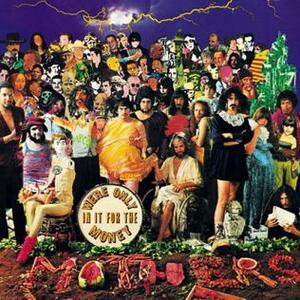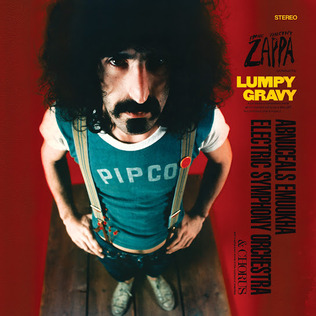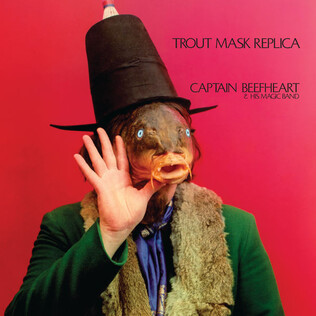by Ohad
Copyright © 2019
Frank Zappa: The King of Counterculture

by Ohad
- Joined Mar 2019
- Published Books 1
Copyright © 2019
Frank Vincent Zappa was born on December 1940 in Baltimore.
Zappa joined his first band in high-school. Later he began developing a deep interest in modern classical music, and learned orchestral percussion. By his final school year, Zappa was composing avant-garde performance pieces for the high-school orchestra.

In 1965, Zappa was in a local R&B band called the Soul Giants. When Ray Collins took over as a guitarist, the band renamed themselves as The Mothers (‘mother’ standing for ‘mother f-er’).
In early 1966, Tom Wilson (a notable producer that worked for Dylan as well as Simon & Garfunkel) noticed their potential. Under his directions, The Mothers signed to Valve Records. By demands from Valve, they had to change their name to The Mothers of Invention.

In June 27, 1966, the band released FREAK OUT!, one of the landmark albums of the 60s.

Freak Out! is considered to be one of the earliest concept albums in rock history, and it’s also the second double album ever made (released only a week after Dylan’s “Blonde On Blonde”). It’s also believed to have had a big influence on The Beatles’ Sgt. Pepper.
The music in Freak Out! is varied, and you can hear blues, doo-wop, garage rock, a capella, and on the experimental side, plenty of sound collages and musique concrete.
The album is satiric in nature, with Zappa voicing his disapproval of the American pop culture and ‘hippie’ movement.
One of the significant pieces in Freak Out! is “Trouble Every Day”, the song that got them the record deal with Tom Wilson. Trouble Every Day is a blues song about the Watts Riots, an event of civil unrest in Los Angeles caused by racial tension. It makes for a surprisingly straight-forward and honest piece by Zappa’s standards.
Their next album was Absolutely Free, continuing with their complex compositions and social satire.

It also contains numerous musical references to classical music like Stravinsky. (And for some reason, most songs here are about vegetables.)
The most famous track on the album is “Brown Shoes Don’t Make It”, a disturbing track about the life of a city hall official- described by some as “Zappa’s first masterpiece” and “a condensed two-hour musical”.
On a personal note, that album also contains one of my absolute favorite instrumentals:
The end of the 60s saw four new albums, both by Frank Zappa and by his band, all under the same project called “No Commercial Potential”. The four albums are musically and thematically related, share compositions with each other, and Zappa has said that they are best listened to as a single unit.
In 1968, The Mothers released the first album of the project, named We’re Only In It For the Money.
Does the cover remind you of anything?

The album served as harsh criticism of psychadelic rock, and the corporatization of youth culture. The packaging also mocks The Beatles, which Zappa felt were insincere and ‘only doing it for the money’. Musically, the album is composed of short segments, that include rock, spoken word and orchestral segments.

The second one was ‘Lumpy Gravy’, a combined effort of Zappa and the Abnuceals Emuukha Electric Symphony Orchestra, a group of musicians he specially organized to help make this album.
It consists of two long suites, each one a messy collage of spoken word segments, orchestral music and other strangeness.

The third one was ‘Cruising With Ruben & The Jets’, a 50s-sounding doo-wop record, emulating the sounds from Zappa’s childhood- and simultaneously mocking them (combining sappy love songs with unusual chord progressions and quotes by Igor Stravinsky). The Mothers played as a fictional band called Ruben & The Jets, tricking radio stations into finally playing their songs, as they believed to have discovered an obscure doo-wop band.

And finally, the last album in the project was the 1969 work ‘Uncle Meat’, an ambitious double album which further shows Zappa’s skills as a composer. It was originally conceived as a soundtrack album for a never-completed sci-fi film with the same title.
The album concludes with the great instrumental piece King Kong, which stretches over the entire 4th side of the record. The piece was almost entirely played in a time signature of 3/8.

The last Zappa creation to be released in the 60s was Hot Rats, his second solo album, containing instrumental jazz-rock pieces. Many consider it to be his finest album.
The one non-instrumental track here, Willie The Pimp, includes vocals by Captain Beefheart.
Don Van Vliet (also known as Captain Beefheart) was a singer and artist, known for his wide vocal range, and distinct pieces of experimental rock and beat poetry. He was a good friend of Zappa since their teenage years, and the two were often featured in each other’s pieces.

In 1969, under the production of Frank Zappa, Captain Beefheart and his magic band released ‘Trout Mask Replica’, often considered as one of the most unique and challenging albums in all of rock history. (Fun fact: It’s also the favorite album of Matt Groening, the creator of The Simpsons.)
The Mothers broke up at the end of the 60s, but Zappa continued to make plenty of music, and his creativity only flourished. What we’ve seen above was just a tiny fragment of his musical output.
Zappa died in December 4, 1993, at the age of 52. Behind him was a legacy of over 30 years of work, including more than 60 albums, as well as feature-length films, music videos and other work. In the 90s he was induced to both the Rock and Roll Hall of Fame and the Jazz Hall of Fame (becoming the first, and so far only person, to be in both lists).
While Zappa is no longer with us, his music and its enormous influence on our culture will always remain.
Finally, for extremely detailed analysis on Zappa’s greatest pieces, I recommend looking at this wonderful project by Kasper Sloots:
https://www.zappa-analysis.com/
Also available as a gigantic 568-page pdf.
Published: Mar 10, 2019
Latest Revision: May 3, 2019
Ourboox Unique Identifier: OB-589277
Copyright © 2019








Very informative. Thanks for writing this book & educating me on the unique gift of Frank Zappa. I had heard of his name only, before now.